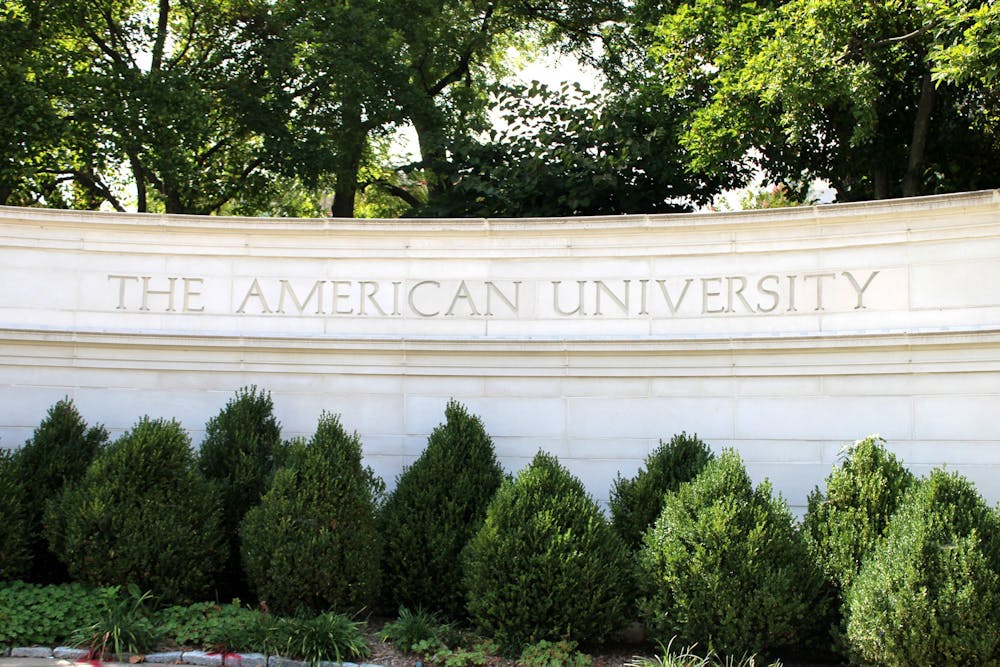The recent Supreme Court decision that the use of race as a factor in college admissions violates the 14th Amendment’s Equal Protection Clause raised an important question: how will American University’s administration support students during the admissions process?
President Sylvia Burwell released an email to the AU community Sept. 15 regarding the University’s next steps after the ruling.
“New training is being developed for our teams who review undergraduate, graduate and [Washington College of Law] applications,” Burwell wrote in the email. “Updated recruitment and conversion strategies to engage diverse applicants in new ways throughout the process are underway.”
Inclusive Excellence is a plan University administrators have pursued since 2017 to address the differences between the campus experiences of students of color as compared to their white counterparts. The plan also aims to advance racial equity by ensuring that students of color have equal access to educational opportunities. However, many student leaders are concerned about the University’s next steps and question whether the administration will stay true to its goals.
Denia Smith, a sophomore in the School of Public Affairs, is one of many student leaders on campus who have expressed disappointment in the SCOTUS ruling. Smith, who serves as the events director for the Black Student Union, said she believes the ruling will significantly impact the University’s prospective pool of applicants of color.
“Speaking through the context of AU, it's definitely going to pose an impact on prospective members of the class of ‘28, the class of ‘29 and the class of ‘30, especially when it comes to not only Black students, but Latino students, AAPI students and the students from indigenous communities,” Smith said. “And that's something that we're going to see not only at AU in terms of the number of BIPOC students potentially decreasing, but something we're going to see across the nation.”
Bryan Amador Rivera, a sophomore in the School of International Service and member of Latinos En Acción, similarly said he believes that the ruling will negatively affect students from marginalized communities when applying to college.
“It’s going to limit the access people of color have towards going to higher education and institutions that may not necessarily reach out to them as often,” he said.
Amador Rivera said student groups such as LEA can provide support to Latino students who are affected by the ruling. LEA recently started a mentorship program titled “Pa’ Mi Gente” to provide admissions advice and mentorship to first-generation, low-income Latino high school students navigating the college admissions process.
“So [we] just let them know about the application process, if they need resume help, anything related to just the college process in general, like FAFSA … things like that, we’re going to help them so they know more about the process,” Amador Rivera said. “Because we want [marginalized students] to still be able to attend these institutions, and we recognize that it’s going to be harder now without affirmative action.”
BSU also has a five-point program structure in place to support Black students on campus, with one of the points being an educational aspect that provides Black students with academic support and encourages academic growth.
“As an executive board, we're really here to show that support for Black students to show that we are here,” Smith said. “We’re in an open space, you want to talk about these issues, you need help finding resources, advocating for causes that you’re passionate about, we’re here.”
However, Smith acknowledged that the responsibility to support marginalized students should not only fall on student leaders of affinity groups. She said administrators need to take more action to ensure that both prospective and current students feel academically supported, especially in light of the SCOTUS ruling.
“I think transparency regarding what admissions is going to look like now, what programs are going to remain the same [is important],” Smith said. “What’s going to happen with the [Summer Transition Enrichment] Program? [Are] there going to be impacts on affinity-based programs at AU, like sections of AUx? I feel like really just that clear open tech communication with the student body is what we need now more than ever before.”
This article was edited by Maeve Fishel, Zoe Bell, Jordan Young and Abigail Pritachard, Copy editing done by Isabelle Kravis.





